Synergistic Research Atmosphere Ground Block
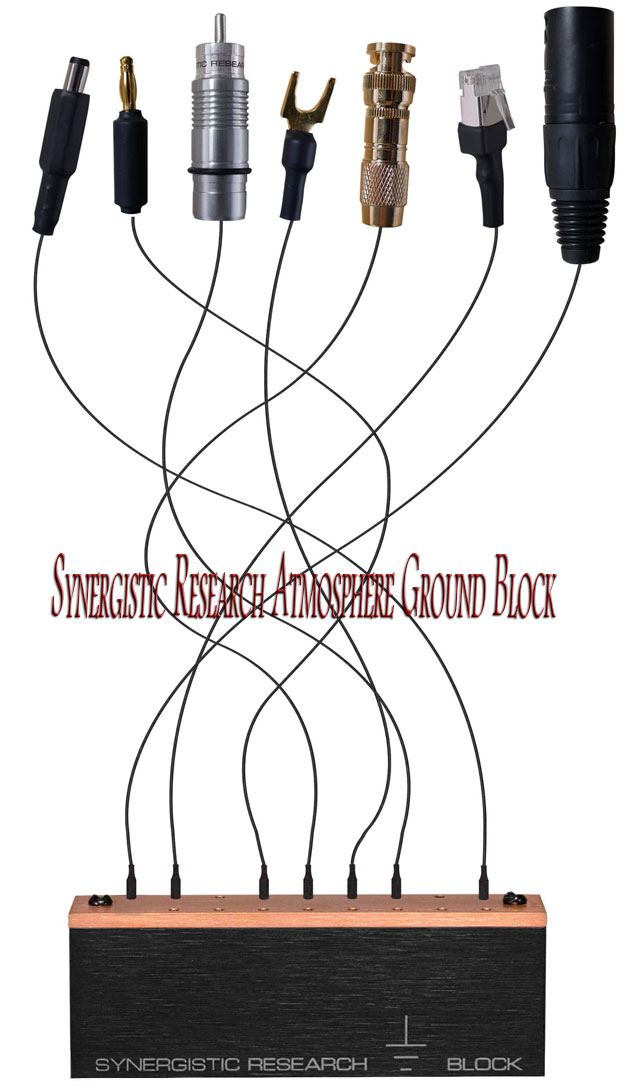
 As you may be aware, there’s a handful of reviews of this product out there in Audiophile Internet Land (including the gem written by Mike Giradi right here). With that said, I aim to walk you through my use and interactions with the Synergistic Research Atmosphere Grounding Block SE (herein AGB SE). My goal here is to illustrate why I think it is one of the most beneficial things I’ve done to improve my system (and probably could benefit yours).
As you may be aware, there’s a handful of reviews of this product out there in Audiophile Internet Land (including the gem written by Mike Giradi right here). With that said, I aim to walk you through my use and interactions with the Synergistic Research Atmosphere Grounding Block SE (herein AGB SE). My goal here is to illustrate why I think it is one of the most beneficial things I’ve done to improve my system (and probably could benefit yours).
SO, YOU THOUGHT YOU WERE PRETTY WELL GROUNDED!?!
Well, I did too until I learned better. I use the term “learned” with some trepidation. After all these years studying our little hobby, I can’t claim any real expertise of the technical matters that explains how sound gets captured, stored, and crafted into something that magnificent illusion of music being performed right in front of us. Though I’ve learned enough to feign some technical understanding, I can’t explain most of the science, but what I can do is describe how successful something is at furthering and deepening our perception of this illusion. Maybe more importantly, how something specifically impacts and manipulates that illusion.
 Like many of you, I have been at this hobby for a good long time and have played the hopscotch game of changing components out – one by one – until I have gathered a combination of ingredients. I think I can say, without the worry of contradiction, that most of us have built our systems this same way. Inevitably there have been hits and misses along the way – the dish is never genuinely finished – but we must persevere!
Like many of you, I have been at this hobby for a good long time and have played the hopscotch game of changing components out – one by one – until I have gathered a combination of ingredients. I think I can say, without the worry of contradiction, that most of us have built our systems this same way. Inevitably there have been hits and misses along the way – the dish is never genuinely finished – but we must persevere!
The point I’m stretching to make is that I, like many of you, have arrived at a place where our systems are satisfying. However, they’re not yet as good as we hoped they could be.
What’s the next step?
For me, in the last few years, the art of tweaking has been the way forward. Though there is no faster way to induce an audiophile food fight, I am fascinated by this segment of our hobby. Although many products make some seemingly outlandish claims, count me, generally, as a believer. Most of my audiophile friends would agree that I’m usually a prove-it-to-me-in-my-own-system, kind of guy. However, products like this one water the seeds for how that belief gets justified.
So, why the long preamble? Well, I think it’s my way of trying to grease the skids of acceptance, so, as I ramble on about how much this Synergistic Atmosphere Grounding Block SE (herein AGB SE) system has deepened the “magnificent illusion.” My lack of being able to explain it technically isn’t an impediment to you trying it.
Let me tell you of my firsthand experience with the AGB SE…
JUST LISTEN, DON’T THINK!
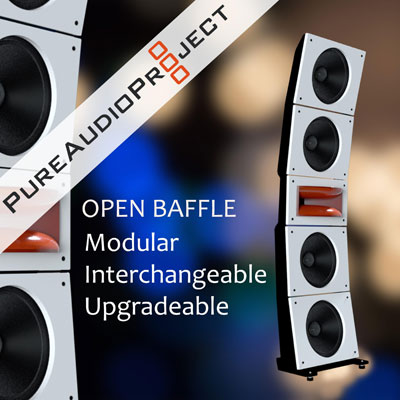 When I can, that’s how I like to approach reviewing something. It’s rarely the case, when something comes my way, that I have no preconceived notions. Very often, I’ve read previous reviews of something in my system. A lover of the audio arts, I pride myself on being aware of what’s happening in our hobby. So, when CP suggested that I check out the AGB SE, I was game but innocent of the possible consequences.
When I can, that’s how I like to approach reviewing something. It’s rarely the case, when something comes my way, that I have no preconceived notions. Very often, I’ve read previous reviews of something in my system. A lover of the audio arts, I pride myself on being aware of what’s happening in our hobby. So, when CP suggested that I check out the AGB SE, I was game but innocent of the possible consequences.
I’d been aware that this product category had bubbled up and had become if not mainstream, at least more visible – in the last few years. The only two people, I know, whose systems used some grounding apparatus were using the much more expensive Entreq system. I assumed that these two systems (much more accomplished than my own) were benefiting by addressing ground issues. Still, I never got the benefit of A/B’ing those systems with and without the grounding devices to understand what role they were playing in these great setups!

So, as per the instruction manual, I hooked up the AGB SE into my system and started to listen…
Whoa!
What!?!
I smiled and felt the satisfaction that comes when something has ticked the system upward. When introducing something new, that’s not always the case. Many times, the reaction is “something has changed,” but there are pros and cons to weigh. My hard-learned experience has led me to believe that the very first emotional reaction to a change to your system is ALMOST always correct.
But, not always!
Further listening can often temper those initial emotions. So, let the analysis games begin! That means pulling out the tried and true musical warhorses (sound familiar?) so that I can calibrate and quantify the meaning of “ticked upward.” More specifically, come up with some audiophile prose to describe the changes allowed (imposed?).
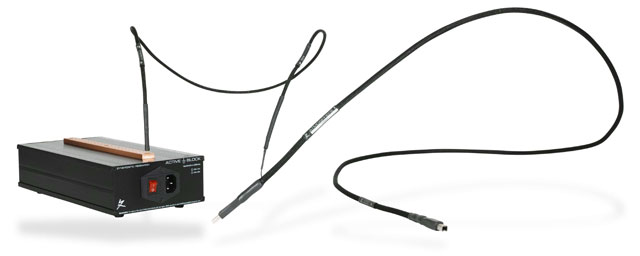
NEW GROUND TO COVER!
As I started to formulate my descriptions of what impact the AGB SE was having on my system, let me remind you that I hadn’t yet read anything about the AGB SE (or grounding systems in general). With that said, here are my thoughts after just about a half-hour of listening.
 First and foremost, my system (whose shortcomings I am keenly aware of) took on a more pleasant and sophisticated character then minutes earlier! Images were smoother, fuller, and more tonally complex and realistic. The quality, relative size, and weight of the bass was a noticeable (and welcome) change. The various images hanging in space were just more there while the area surrounding those images, and the images themselves, just felt more defined and dimensional and present. The sense of ease was palpable and welcome yet offset by a nagging suspicion that this would have an eventual downside.
First and foremost, my system (whose shortcomings I am keenly aware of) took on a more pleasant and sophisticated character then minutes earlier! Images were smoother, fuller, and more tonally complex and realistic. The quality, relative size, and weight of the bass was a noticeable (and welcome) change. The various images hanging in space were just more there while the area surrounding those images, and the images themselves, just felt more defined and dimensional and present. The sense of ease was palpable and welcome yet offset by a nagging suspicion that this would have an eventual downside.
As listening continued, I was relieved that I didn’t sense the loss of detail or dynamics that “ease” often causes. I sensed that the system was now cleaner, more dynamic, and more coordinated than ever!
What also became evident was what I like to call “bigification” i.e., the images, and the air around each, and the sound stage itself, proportionally grew. The change in perspective this caused is analogous to moving from a 10th—row seat to one in the 5th.
Being someone who deals with a somewhat smaller room (16 x12 x 8), “bigification” is always welcome, as these spatial improvements are still significant – for me – to help illuminate the way towards the “magnificent illusion.”
After a day or two of really getting the full measure of the changes wrought by the grounding system, I felt it was time for me to explore the Synergistic web site and see what they had to say and check for other reviews and explore what others were saying. I was looking forward to comparing notes to assess if what I heard was being experienced by others (in their probably, very different systems).
Below are some fun facts that I’ve excerpted from the Synergistic web site, which describes some of the shared properties and differences between the three different iterations of their grounding systems.
Active Ground Block SE
The heart of your system.
The New Active Ground Block takes the award-winning UEF Ground Filter from our original SR Ground Block and adds an active ULF Field Generator, and on the SE model, a dedicated Active EM Cell as found in SR PowerCell line conditioners to supercharge the performance of every component in your system including Synergistic Research cables equipped with external grounding technology. Benefits include a noticeable increase in deep bass power and weight, a more holographic sound field, smoother high frequencies with greater extension and ‘air,’ a more present and layered mid-range, increased tonal density with an apparent increase in resolution; it’s like going from a standard resolution Redbook file to Double DSD, the improvement is that dramatic.
How it works: It all starts with 44 Star Ground Points to reduce component to component ground inductance. That’s 44 ground connections to the original’s 18. You can ground your entire system including all components, a full loom of SR cable shields, and even equipment racks, computer hard drives, absolutely everything in your system can be grounded to one SR Active Ground Block.
By cleaning up your system’s ground connection you hear a noticeable improvement in soundstage height, depth and width thanks to a lower noise floor. Soundstage scale is improved with richer tonal density especially at the edges of your sound field. Image outlines are brought into clearer focus while musicality and overall system refinement are greatly improved.
Wow, my description (though less detailed) is eerily similar to theirs!
I swear I didn’t peek!!
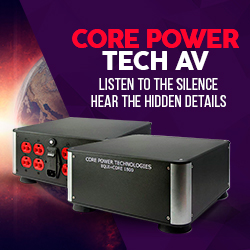 Though, also, they’ve added technical explanations that offer an improved path to the ground helps reduce the overall noise level in your system (though the sense of ease. I noted above, may seem like the most apparent result of lower noise). I believe that many of the other positive attributes discussed above are “heard” when noise is lessened first. I’ve used this example before, but I think it bears repeating, just like when riding in a car with the windows down and the radio playing; when you roll the windows up, your ability to hear the music better.
Though, also, they’ve added technical explanations that offer an improved path to the ground helps reduce the overall noise level in your system (though the sense of ease. I noted above, may seem like the most apparent result of lower noise). I believe that many of the other positive attributes discussed above are “heard” when noise is lessened first. I’ve used this example before, but I think it bears repeating, just like when riding in a car with the windows down and the radio playing; when you roll the windows up, your ability to hear the music better.
Interestingly, several other reviewers of the AGB SE talked of how they could play their systems LESS loudly and yet still get all their daily requirements of musical satisfaction. One of my favorite benefits of having the AGB SE was I could now play my system LOUDER!
All the described benefits, conferred by this ground system, allowed me to enjoy a “closer to live” loudness reality. I’m sure many will find this point debatable. Still, I think that most of us find a comfortable average listening level by turning the volume up till there is a sense of strain or edge then coming back down to what’s suitable for the particular piece of music. Now it turns out that Synergistic has more up their sleeve here than just noise reduction. There are other very beneficial features added to this SE version of the AGB, which are said to intensify and enhance the benefits of grounding.

Their website mentions the ULF Field Generator and an Active EM Cell (check the web site for more details but variations of these are used in the AGB SE). I can’t really talk to how those concepts specifically impact the music, but I can tell you of the differences conferred by the Galileo UEF filters (ie. Tuning Modules).
These are part and parcel of the upgraded AC cord which comes with the SE version of the AGB. As you can see one is red and the other gold.
Playing with these and deciding which one worked best proved the most time-consuming part of the journey. The reason being that these were really the only user-controlled variables. All the other attributes brought to the table are pretty much fixed once you plugged everything together (to be fair there is another, which is the choice of Standard or High Def. grounding cables. Since I only used the HD cables, I can’t really help you with that comparison).
According to the web site…
Red UEF Tuning Modules are fast oscillators that tune for clarity, refined detail and pinpoint image focus.
Gold UEF Tuning Modules have a slower response for a sound that is warmer with a pronounced increase in sound staging and a warm sense of envelopment that in some systems translates into greater musicality.
…and interestingly, my (before reading) descriptions of what each of these modules does, coincided right-on with the web sites!
Now, I’m not trying to look good and claim some sort of special powers of perception (I’m sure many of you would have described the AGB SE’s properties just as I did) but rather to make the point that Synergistic should be congratulated for ,not only, being able to find their way to these technologies, but also for describing them so accurately. It makes me feel confident that descriptions of their other products should be trustworthy!
Finding Common Ground
By now, you must have gotten the distinct impression that I’m very impressed with what the AGB SE has brought to my system; and you would be very right! The question is, could it bring these same attributes to your system? As always, there is no substitute for trying something in your own setup. Let me point out though, that ALL the reviews I’ve seen online have described the impacts to their systems in pretty much the same ways. It’s uncanny! All the reviewers agreed that the changes brought to their systems were as potent as a significant component change.
Therefore,
Highly! Highly! Recommended.
ed van winkle
Specifications:
Active Grounding Block SE, 120V, $2995
Website: www.synergisticresearch.com
Stereo Times Masthead
Publisher/Founder
Clement Perry
Editor
Dave Thomas
Senior Editors
Frank Alles, Mike Girardi, John Hoffman, Russell Lichter, Terry London, Moreno Mitchell, Paul Szabady, Bill Wells, Mike Wright, Stephen Yan, and Rob Dockery
Current Contributors
David Abramson, Tim Barrall, Dave Allison, Ron Cook, Lewis Dardick, Dan Secula, Don Shaulis, Greg Simmons, Eric Teh, Greg Voth, Richard Willie, Ed Van Winkle, and Rob Dockery
Music Reviewers:
Carlos Sanchez, John Jonczyk, John Sprung and Russell Lichter
Site Management Clement Perry
Ad Designer: Martin Perry



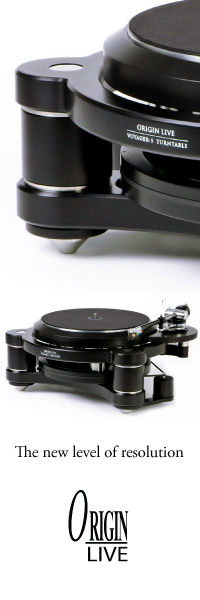
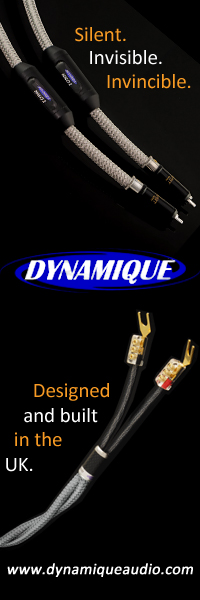
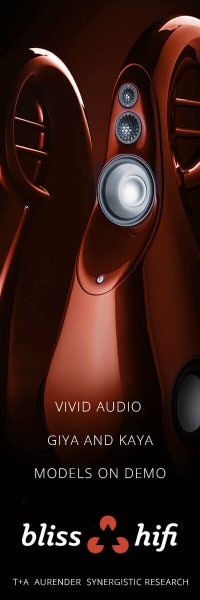
Be the first to comment on: Synergistic Research Atmosphere Ground Block